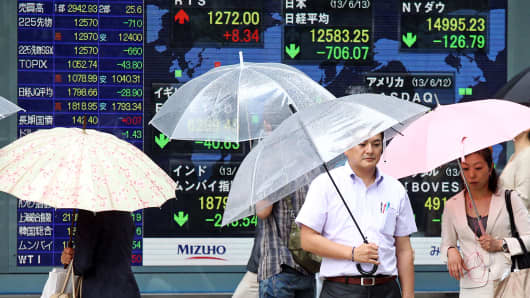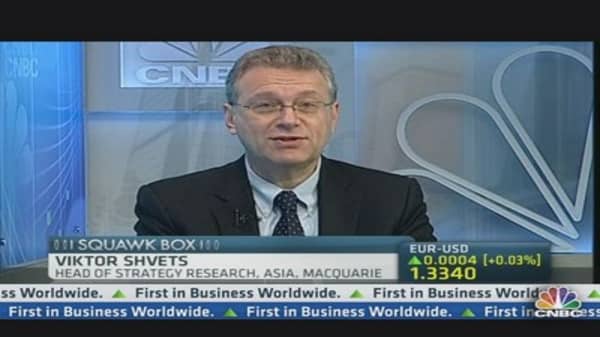Japan's benchmark Nikkei 225 accelerated its losses to plunge over 6 percent on Thursday in a vicious sell-off that took the index to levels not seen before the Bank of Japan launched its massive stimulus program on April 3.
Uncertainty over central banks rolling back stimulus saw dollar/yen drop below the key 95-handle, rising nearly 2 percent to plumb a new 10-week low. The Nikkei is now down over 21 percent from last month's five-and-a-half-year high of 15,942, placing the benchmark firmly back in bear market territory for the second time in less than a week.
(Read More: Yen Surges as Safe-Haven Bid Back in Play)
"In my personal opinion, this is deep consolidation phase. I would expect that that's going to continue for another 3-4 weeks but afterwards I do think earnings visibility in Japan is going to pull shares higher again," said Jesper Koll, managing director at JP Morgan Securities.
In response to the steep falls, Bank of Japan Governor Haruhiko Kuroda was quoted by the Nikkei business daily as saying that the Japanese economy is on a steady path to recovery and that financial markets will calm down over time.
Asia-Wide Losses
Elsewhere in Asia, markets experienced a bout of heavy selling with the Shanghai Composite down over 3 percent after being closed since last week, Seoul shares falling to a new eight-week low and Australia's S&P ASX 200 hitting a fresh five-and-a-half-month low.
Emerging markets also extended losses as capital flows continue to exit local equities. Thailand's SET index and Philippine's benchmark index slumped over 5 percent each, extending losses from earlier this week.





